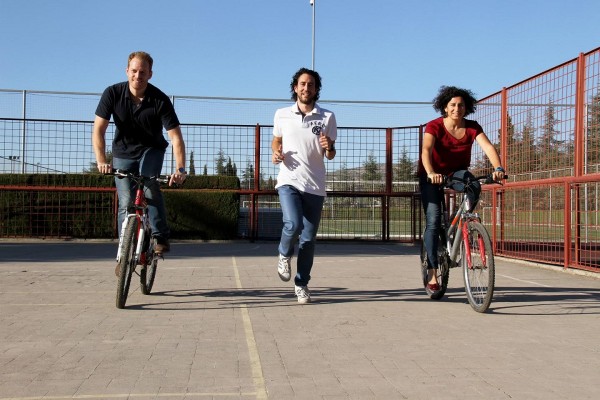
The research is fostered by an initiative from Granada's provincial government and its Department of Environment with the goal of promoting safe and healthy ways of going to school.
The results appear in a scientific paper published by Manuel Herrador Colmenero, Emilio Villa González and Palma Chillón, all of them professors at the UGR Department of Physical Education and Sport and members of the research group PROFITH.
A total of 745 schoolchildren, whose ages ranged from 6 to 12 years, participated in this study by filling a questionnaire. They had to tell if they went to school accompanied by an adult or not, how did they travel, and what was their perception about the safety of the route.
The research shows that children above 10-12 years are more likely to commute to school unaccompanied and in an active way. This not only improves their perception about the safety of the route, but also their autonomy, their self-confidence and their decision-making ability with respect to their way of commuting to school.
Moreover, active commuting is a source of physical activity for children and favors a healthier lifestyle. As Manuel Herrador, main researcher of this work says, "this increases physical activity and cardiovascular health in children that commute actively, especially in those that go cycling". Another line of research the group PROFITH has is focused on analysing the cognitive and academic performance improvement that active commuting may yield.



